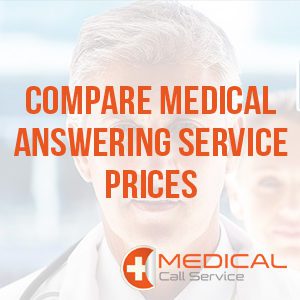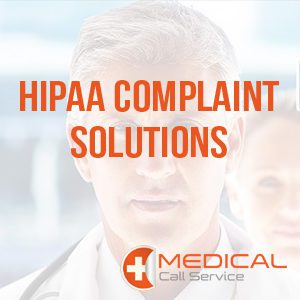
Medical Answering Services vs. In-House Staffing: What’s Best for Your Practice?
In the dynamic world of healthcare, efficient patient communication and administrative management are pivotal. Medical practices often face the dilemma of choosing between medical answering services and in-house staffing for handling patient calls and related tasks. This blog aims to compare these two options, helping you decide which is best suited for your practice.
Understanding In-House Staffing
When healthcare practices consider in-house staffing for managing patient communications and administrative tasks, they’re looking at a multifaceted approach that encompasses various roles, responsibilities, and implications.
Understanding the Dynamics of In-House Staffing
In-house staffing involves employing personnel such as receptionists, administrative assistants, billing specialists, and sometimes even clinical staff like nurses or medical assistants. These team members handle a range of tasks from answering calls and scheduling appointments to managing patient inquiries and records. An essential aspect of in-house staffing is the need for comprehensive training in practice protocols, patient management software, and staying abreast of healthcare regulations.
The Advantages of In-House Staffing
One of the most significant benefits of in-house staffing is the personalized patient experience it offers. Staff members who regularly interact with patients develop personal relationships, leading to a more empathetic and tailored communication experience. This consistency in patient interaction fosters a sense of familiarity and trust. Another advantage is the direct control and oversight it allows, which is crucial for maintaining the quality of patient service and making quick adjustments as needed.
The Challenges of In-House Staffing
However, in-house staffing comes with its own set of challenges and resource implications. These include the regular salaries, benefits, and other employment-related costs associated with maintaining a full-time staff. There’s also the need for adequate workspace and equipment, which adds to the operational costs. Limited availability of staff outside office hours and issues such as absences, sick days, and staff turnover can impact the consistency and reliability of patient communication. Additionally, the need for ongoing training and the risk of non-compliance, especially regarding patient privacy laws, are crucial factors that practices need to manage diligently.
Opting for in-house staffing for medical answering needs means committing to a system that offers personalized patient interaction and direct control over operations. However, it also requires significant investment in terms of resources, training, and ensuring compliance with healthcare regulations. For healthcare practices, weighing these factors against their capacity to manage and sustain an in-house team is essential. A thorough understanding of these elements will aid practices in making an informed decision about whether in-house staffing aligns with their operational strategies and patient care goals.

Exploring Medical Answering Services
In the dynamic healthcare environment, medical answering services have become an integral part of efficient practice management. This approach involves outsourcing patient communication tasks to specialized external services. Understanding how these services work, their impact on practice operations, and the patient experience is crucial for healthcare providers considering this option.
The Mechanics of Medical Answering Services
Medical answering services function as an extension of a healthcare practice, but from an offsite location. Trained professionals handle incoming calls, schedule appointments, manage patient queries, and even handle emergency call routing. These services often use advanced technology to integrate seamlessly with a practice’s existing systems, ensuring that patient records and scheduling are up-to-date.
How It Works
- Call Handling: Incoming calls are routed to the answering service where trained agents handle each call according to the protocols set by the healthcare practice.
- Appointment Scheduling and Reminders: These services manage appointment bookings and send out reminders to patients, helping reduce no-show rates.
- 24/7 Availability: Unlike in-house staff, medical answering services can offer round-the-clock support, ensuring that patient calls are answered even outside of regular office hours.
Patient Experience with Medical Answering Services
From a patient’s perspective, the experience with a medical answering service can be markedly different from interacting directly with the practice.
Conversational Example:
- Patient: “Hello, I’m calling to see if I can get an appointment with Dr. Smith. I’ve been having severe back pain.”
- Answering Service: “Absolutely, I can help with that. Let me quickly check Dr. Smith’s availability. We have an opening this Wednesday afternoon. Would that work for you?”
- Patient: “Yes, that’s perfect. Thank you!”
This interaction showcases the professionalism and efficiency that a medical answering service can provide, ensuring that the patient’s needs are promptly addressed.
The Benefits of Using Medical Answering Services
- Increased Efficiency: By outsourcing calls, healthcare providers can focus more on in-person patient care without being interrupted by phone calls.
- Cost-Effectiveness: These services can be more cost-effective than maintaining in-house staff, especially for smaller practices or those with fluctuating call volumes.
- Improved Patient Satisfaction: Quick and professional responses to calls and efficient handling of appointments can enhance the overall patient experience.
Considerations for Healthcare Practices
While medical answering services offer numerous benefits, it’s important for healthcare practices to choose a service that maintains the standard of care they wish to provide. Ensuring the service is HIPAA compliant, offers customization to meet specific practice needs, and has a track record of reliable service is crucial.



Medical answering services represent a significant shift in how patient communications are managed in the healthcare sector. They offer an efficient, cost-effective solution that can improve patient satisfaction and streamline practice operations. For healthcare providers, understanding how these services work and their impact from a patient’s perspective is key to making an informed decision about integrating them into their practice operations.
Cost-Benefit Analysis of Hiring a Medical Answering Service
When a healthcare practice considers hiring a medical answering service, understanding the financial implications and potential benefits is essential. This cost-benefit analysis aims to offer healthcare providers a clearer perspective on how investing in a medical answering service can impact their practice, both financially and operationally.
Analyzing the Costs
The costs associated with hiring a medical answering service typically involve a monthly fee, which can vary based on the level of service required. These costs are influenced by factors such as the volume of calls, hours of coverage needed, and specific services like appointment scheduling or emergency call handling.
- Regular Monthly Fees: Most medical answering services charge a fixed monthly fee, which can be budgeted for as a regular operational cost.
- Variable Costs: Some services may have variable costs based on call volume or additional services requested beyond the standard package.
Comparing with In-House Costs
In contrast, maintaining an in-house call handling team involves various costs:
- Salaries and Benefits: Full-time salaries and benefits for staff can significantly exceed the fixed monthly fee of an answering service.
- Training and Equipment: Continuous training, especially for compliance with healthcare regulations, and investments in phone systems and office space add to the in-house costs.
- Operational Overheads: Managing an in-house team also involves additional administrative overheads.
Evaluating the Benefits
Beyond the direct financial comparison, there are several intangible benefits that a medical answering service provides:
- Enhanced Patient Satisfaction: Professional answering services can improve patient experience through efficient and responsive communication, contributing to patient retention and positive word-of-mouth.
- Increased Operational Efficiency: Delegating call handling to an external service frees up staff and resources, allowing the practice to focus more on patient care and other core activities.
- Scalability and Flexibility: An answering service can easily scale to handle fluctuating call volumes, something that can be challenging and costly with an in-house team.
- Reduced Missed Calls and Opportunities: Round-the-clock coverage ensures that patient calls are always answered, reducing missed opportunities for appointments and other services.
Long-Term Financial Implications
While the initial cost of a medical answering service might seem like an added expense, it’s important to consider the long-term financial implications. Improved patient satisfaction and retention, coupled with increased operational efficiency, can lead to greater financial health for the practice over time.
The decision to hire a medical answering service should be based on a comprehensive analysis of both the direct costs and the broader operational benefits. While the immediate cost savings are an important factor, the long-term benefits of improved patient satisfaction, operational efficiency, and scalability should also be considered. By carefully weighing these factors, healthcare practices can make an informed decision that aligns with their financial goals and enhances their overall patient care services.


Advancements in Medical Answering Services
In today’s fast-paced healthcare environment, the integration of technology in medical answering services is revolutionizing how practices manage patient communication. This section delves into the technological advancements being incorporated into these services and how they are enhancing efficiency and patient care.
Embracing Cutting-Edge Technology
Modern medical answering services are leveraging advanced technologies to improve their service offerings, including:
- Automated Call Distribution Systems: These systems efficiently route calls based on predefined rules, ensuring quick response times and effective call management.
- AI and Machine Learning: Some services are utilizing AI to provide initial responses to patient inquiries, schedule appointments, and even offer basic triage support.
- Secure Messaging Platforms: These platforms facilitate secure and HIPAA-compliant text messaging and emails, enabling swift communication with patients.
Benefits of Technological Integration
The integration of these technologies offers several key benefits:
- Enhanced Patient Experience: With features like automated reminders and AI-assisted interactions, patients enjoy a more streamlined and responsive communication experience.
- Increased Accuracy and Efficiency: Advanced technologies reduce the likelihood of human error and increase the overall efficiency of the call handling process.
- Data Analysis and Insights: Modern answering services can provide practices with valuable insights into call patterns, patient needs, and areas for improvement.
Staying Ahead with Innovation
Medical answering services that embrace technological advancements are better equipped to adapt to the evolving needs of healthcare practices. They offer innovative solutions that can keep a practice at the forefront of patient communication and management.
Integration with Practice Management Systems
Another important aspect is how these services integrate with a practice’s existing management systems:
- Seamless Integration: Advanced answering services can integrate seamlessly with a practice’s electronic health records (EHR) and scheduling systems, ensuring real-time updates and accurate record-keeping.
- Customization and Flexibility: The ability to customize the integration based on the practice’s unique workflow adds significant value, making the service truly an extension of the practice.



The integration of advanced technology in medical answering services is transforming the landscape of patient communication in healthcare. By keeping up with these advancements, healthcare practices can enhance their operational efficiency, improve patient satisfaction, and stay competitive in the healthcare industry. As technology continues to evolve, the potential for these services to become even more integral to healthcare practices is immense.
Continuing with the theme of technological advancements in medical answering services, let’s delve deeper into how these innovations are not just transforming current practices but also shaping the future of patient-provider interactions.
Harnessing Data for Improved Healthcare Services
One of the most significant advancements in medical answering services is the ability to collect and analyze large volumes of data.
- Patient Interaction Data: Modern systems can track and analyze call patterns, frequently asked questions, and common patient concerns. This data can be invaluable in understanding patient needs and improving service offerings.
- Predictive Analytics: By analyzing call data, practices can predict peak call times, patient appointment patterns, and even potential staffing needs, allowing for more proactive practice management.
Enhancing Remote Healthcare Access
Technological integration in medical answering services also plays a crucial role in facilitating remote healthcare, an increasingly important aspect in today’s healthcare landscape.
- Telehealth Support: Medical answering services can seamlessly integrate with telehealth platforms, providing patients with easy access to remote consultations and support.
- After-Hours Care: With 24/7 answering services equipped with advanced technology, patients can receive reliable information and support even outside of regular office hours, bridging the gap in healthcare accessibility.



Future Trends and Potential Developments
Looking ahead, the potential developments in medical answering services could include:
- Increased AI Integration: Further advancements in AI could lead to more sophisticated patient interaction, including AI-powered diagnosis tools and personalized patient care suggestions.
- Enhanced Security Features: As technology advances, so do the methods to protect patient data. Future services will likely incorporate even more robust security measures to safeguard patient information.
- Integration with Wearable Technology: Potential integration with wearable health devices could provide real-time health data to healthcare providers, allowing for more informed patient interactions and care decisions.
The integration of cutting-edge technology in medical answering services marks a significant leap forward in the way healthcare practices manage patient communication and administrative tasks. By embracing these technological advancements, practices can enhance patient satisfaction, increase operational efficiency, and stay ahead in the rapidly evolving healthcare sector. As technology continues to progress, the capabilities and impact of medical answering services are poised to grow, making them an indispensable tool for modern healthcare practices.
Deciding between medical call services and in-house staffing depends on multiple factors, including your practice’s size, budget, patient volume, and the nature of your operations. While in-house staffing offers direct control and personalized interactions, medical call services provide cost efficiency, specialized expertise, and extended availability. By carefully assessing your practice’s specific needs and priorities, you can choose the option that best supports your operational efficiency and enhances patient satisfaction.

Leave a Reply